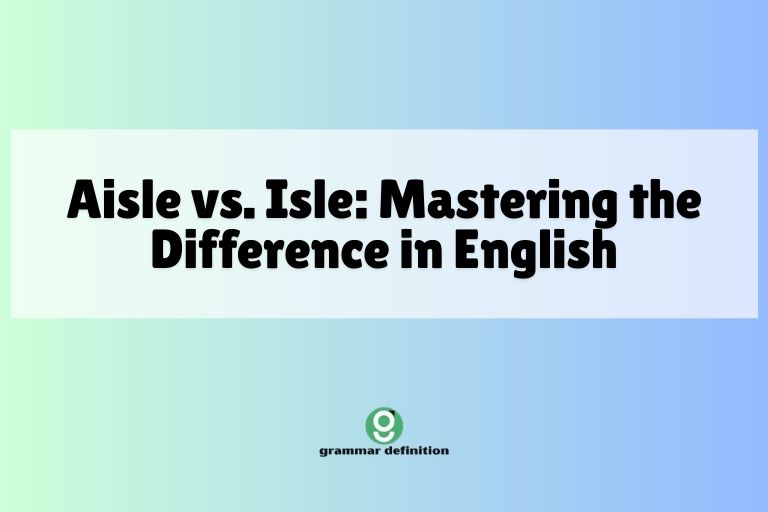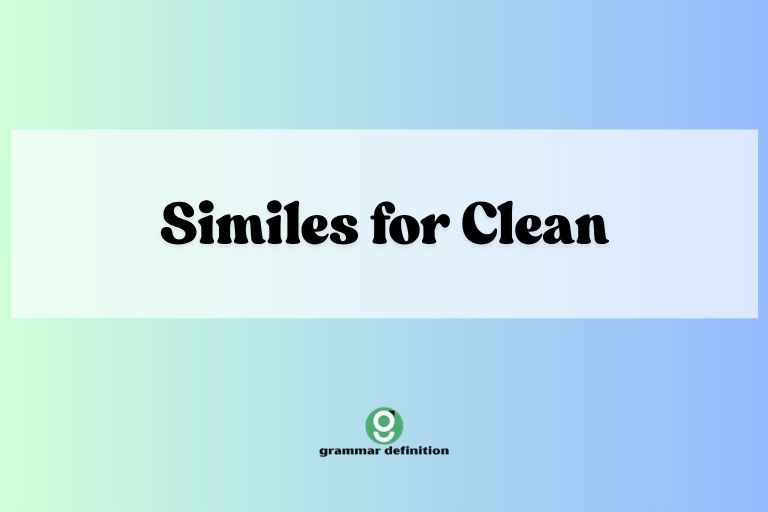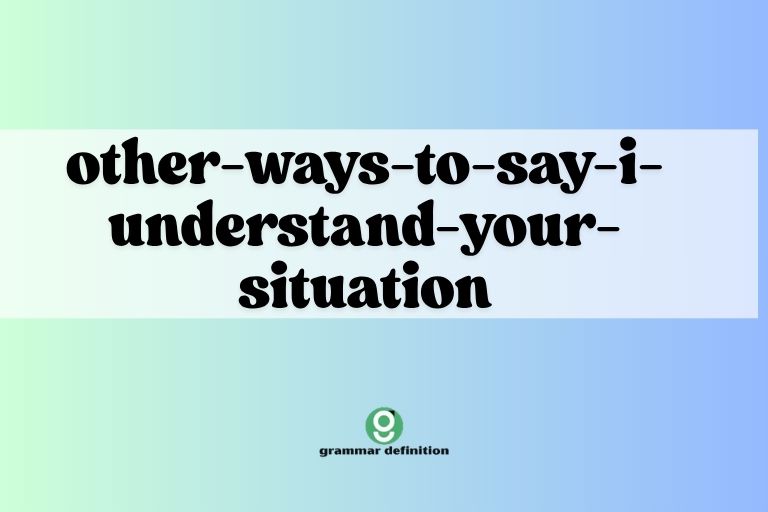Aisle vs. Isle: Mastering the Difference in English

Understanding the subtle nuances of the English language can be challenging, especially when dealing with homophones – words that sound alike but have different meanings and spellings. “Aisle” and “isle” are prime examples of such words, often causing confusion for both native and non-native English speakers.
Mastering their correct usage is crucial for clear and effective communication, enhancing both written and spoken English skills. This article aims to provide a comprehensive guide to differentiating between “aisle” and “isle,” offering detailed explanations, examples, and practice exercises to solidify your understanding.
Whether you’re a student, writer, or simply someone looking to improve their grammar, this guide will equip you with the knowledge to use these words with confidence.
Table of Contents
- Introduction
- Definitions: Aisle vs. Isle
- Structural Breakdown
- Types and Categories
- Examples
- Usage Rules
- Common Mistakes
- Practice Exercises
- Advanced Topics
- Frequently Asked Questions (FAQ)
- Conclusion
Definitions: Aisle vs. Isle
To effectively differentiate between “aisle” and “isle,” it’s crucial to understand their individual meanings and contexts. While both words sound identical, their definitions are distinct and unrelated.
Aisle Definition
An **aisle** is a passageway between rows of seats in a building, such as a church, theater, or airplane, or between rows of shelves in a supermarket or other store. It is essentially a designated space for walking or moving between organized sections.
The word “aisle” implies a structured environment where movement needs to be facilitated in an orderly manner. Think of the carefully arranged shelves in a grocery store, each separated by an aisle that allows shoppers to browse and access products.
The key aspect of an aisle is its function as a pathway within a larger, enclosed space.
Isle Definition
An **isle** refers to a small island. It is a landmass surrounded by water, typically smaller than a continent or large island.
The term “isle” often evokes images of remote, picturesque locations, secluded beaches, and natural beauty. Unlike “aisle,” which connotes a structured, man-made environment, “isle” is inherently geographical, referring to a natural land formation.
Consider the British Isles, a group of islands off the coast of Europe, or the numerous small isles dotting the Caribbean Sea. The defining characteristic of an isle is its isolation and its surrounding body of water.
Structural Breakdown
The structural difference between “aisle” and “isle” lies primarily in their spelling and the contexts in which they are used. “Aisle” always refers to a passageway, while “isle” always refers to a small island.
There are no variations in their spelling that alter their core meanings. The key to distinguishing them is understanding the context of the sentence or situation.
If the sentence describes a place for walking between rows, “aisle” is the correct choice. If the sentence describes a landmass surrounded by water, “isle” is appropriate.
Types and Categories
While both “aisle” and “isle” have singular meanings, they can be further categorized based on their specific applications and characteristics.
Types of Aisles
Aisles can be categorized based on their location and function. Here are some common types:
- Church Aisle: A passageway in a church, typically running from the entrance to the altar.
- Supermarket Aisle: A pathway between shelves in a grocery store, often categorized by product type (e.g., the cereal aisle, the dairy aisle).
- Theater Aisle: A passageway between rows of seats in a theater or cinema.
- Airplane Aisle: The central walkway in an airplane, allowing passengers to move between seats.
- Library Aisle: The space between bookshelves in a library.
Types of Isles
Isles can be classified based on their geographical characteristics and formation. Here are a few examples:
- Continental Isle: An island located on a continental shelf.
- Oceanic Isle: An island that rises from the ocean floor, often volcanic in origin.
- Coral Isle: An island formed from coral reefs.
- Tidal Isle: An island that is connected to the mainland during low tide.
- River Isle: A landmass surrounded by a river.
Examples
To further illustrate the difference between “aisle” and “isle,” let’s examine various examples in different contexts. These examples will highlight how the words are used in sentences and how their meanings are conveyed.
Aisle Examples
The following table provides examples of “aisle” used in sentences, showcasing its meaning as a passageway.
Table 1: Aisle Examples
| Sentence | Context |
|---|---|
| “I walked down the aisle to find my seat.” | Referring to a passageway in a theater or church. |
| “The grocery store aisle was crowded with shoppers.” | Describing a pathway between shelves in a supermarket. |
| “Please keep the aisle clear of luggage.” | Instructing passengers on an airplane to maintain a clear walkway. |
| “She found her favorite cereal in the breakfast aisle.” | Specifying a particular section of a supermarket. |
| “The wedding guests lined the aisle as the bride walked in.” | Describing a ceremonial passageway in a church or wedding venue. |
| “He tripped over a box left in the aisle.” | Highlighting a potential hazard in a passageway. |
| “The librarian asked him to not block the aisle with his cart.” | Describing a walkway in a library. |
| “She quickly walked down the aisle to reach the exit.” | Referring to a quick movement through a passageway. |
| “The store manager was inspecting the cleanliness of each aisle.” | Describing a routine check of the store’s passageways. |
| “He searched every aisle for the specific brand of coffee.” | Illustrating a thorough search in a supermarket. |
| “The spilled juice created a sticky mess in the aisle.” | Describing a hazard in a walkway. |
| “The usher guided them down the aisle to their seats.” | Referring to assistance in finding seats in a theater. |
| “Construction workers widened the aisle to improve accessibility.” | Describing an improvement to a passageway. |
| “The employees restocked the shelves in each aisle overnight.” | Referring to a routine task in a supermarket. |
| “The emergency exit was located at the end of the aisle.” | Highlighting the location of an emergency exit. |
| “The church aisle was decorated with flowers for the service.” | Describing a decorated passageway in a church. |
| “He noticed a sale sign at the end of the aisle.” | Referring to a promotional sign in a supermarket. |
| “The crowded conference hall had very narrow aisles.” | Describing cramped walkways in a conference setting. |
| “She pushed her shopping cart carefully down the crowded aisle.” | Illustrating careful navigation in a supermarket. |
| “The museum had ropes along the aisles to protect the exhibits.” | Describing a barrier in a museum to protect artwork. |
| “He got lost in the maze of aisles at the furniture store.” | Referring to the confusing layout of walkways in a store. |
| “The cleaning crew mopped the floors of all the aisles early in the morning.” | Describing a cleaning routine in a large store. |
| “The speaker’s microphone echoed loudly throughout the long aisle.” | Referring to the acoustics in a large hall. |
| “Security cameras were positioned to monitor activity within each aisle.” | Describing surveillance measures in a store. |
| “The parade marched down the main aisle of the stadium.” | Referring to a central walkway in a stadium. |
Isle Examples
The following table provides examples of “isle” used in sentences, showcasing its meaning as a small island.
Table 2: Isle Examples
| Sentence | Context |
|---|---|
| “They spent their vacation on a remote tropical isle.” | Describing a vacation destination. |
| “The small isle was uninhabited and covered in lush vegetation.” | Describing a deserted island. |
| “He dreamed of living on a peaceful isle, far from the city.” | Expressing a desire for a tranquil island life. |
| “The boat sailed towards the distant isle on the horizon.” | Describing a journey towards an island. |
| “The legend spoke of a hidden treasure buried on the isle.” | Referring to a mythical treasure on an island. |
| “The isle was known for its unique wildlife and stunning beaches.” | Highlighting the attractions of an island. |
| “She explored every corner of the tiny isle.” | Describing a thorough exploration of a small island. |
| “The lighthouse stood tall on the rocky isle.” | Describing a landmark on an island. |
| “The pirates used the isle as a hideout.” | Referring to the historical use of an island. |
| “The inhabitants of the isle were friendly and welcoming.” | Describing the people living on an island. |
| “The storm isolated the isle from the mainland.” | Describing the effects of weather on an island. |
| “The scientists studied the unique ecosystem of the isle.” | Referring to scientific research on an island. |
| “The deserted isle was home to many species of birds.” | Describing the wildlife on a deserted island. |
| “The ferry transported tourists to the beautiful isle.” | Describing transportation to an island. |
| “The ancient ruins on the isle attracted many archaeologists.” | Referring to historical sites on an island. |
| “The small isle was a popular spot for snorkeling.” | Highlighting a recreational activity on an island. |
| “The local fishermen depended on the resources of the isle.” | Describing the economic importance of an island. |
| “The volcanic isle was formed millions of years ago.” | Referring to the geological formation of an island. |
| “The government declared the isle a protected nature reserve.” | Describing conservation efforts on an island. |
| “The map showed a cluster of small isles in the archipelago.” | Referring to a group of islands. |
| “Sailing around the isle at sunset was breathtaking.” | Describing scenic beauty around an island. |
| “The folklore of the isle was rich with tales of sea monsters.” | Referring to the cultural heritage of an island. |
| “Many shipwrecks surrounded the treacherous coast of the isle.” | Describing dangers near an island. |
| “The native plants on the isle were used for traditional medicine.” | Referring to the medicinal use of island flora. |
| “The community on the isle was self-sufficient and resourceful.” | Describing the lifestyle of island inhabitants. |
Usage Rules
To ensure correct usage of “aisle” and “isle,” it’s essential to follow specific rules and guidelines. These rules will help you avoid common errors and use the words appropriately in various contexts.
Aisle Usage Rules
Remember that “aisle” always refers to a passageway. Here are some rules to guide its usage:
- Use “aisle” when referring to a pathway between rows of seats or shelves. For example, “The bride walked down the aisle.”
- “Aisle” is often used in the context of structured environments like stores, theaters, and churches. For example, “The cereal is in aisle five.”
- Be mindful of the spelling. “Aisle” contains the letters “ai” which can be a helpful mnemonic device to remember it refers to a walkway.
Isle Usage Rules
Keep in mind that “isle” always refers to a small island. Here are some rules to guide its usage:
- Use “isle” when referring to a landmass surrounded by water. For example, “They vacationed on a tropical isle.”
- “Isle” is typically used in geographical contexts. For example, “The British Isles are located off the coast of Europe.”
- Remember the spelling. “Isle” contains the letter “s,” which can be associated with the “sea” surrounding an island.
Common Mistakes
One of the most frequent errors is confusing “aisle” and “isle” due to their similar pronunciation. Here are some examples of common mistakes and their corrections:
Table 3: Common Mistakes
| Incorrect | Correct | Explanation |
|---|---|---|
| “They walked down the isle to find their seats.” | “They walked down the aisle to find their seats.” | “Aisle” refers to a passageway, not an island. |
| “The treasure was buried on a deserted aisle.” | “The treasure was buried on a deserted isle.” | “Isle” refers to a small island, not a passageway. |
| “The grocery store had a wide isle for shoppers.” | “The grocery store had a wide aisle for shoppers.” | “Aisle” is the correct term for a pathway in a store. |
| “He dreamed of living on a tropical aisle.” | “He dreamed of living on a tropical isle.” | “Isle” correctly refers to a tropical island. |
| “The church had beautiful decorations along the center isle.” | “The church had beautiful decorations along the center aisle.” | “Aisle” is the correct term for a passageway in a church. |
Practice Exercises
To reinforce your understanding of “aisle” and “isle,” complete the following exercises. These exercises will test your ability to distinguish between the two words in different contexts.
Exercise 1: Fill in the Blanks
Fill in the blanks with either “aisle” or “isle” to complete the sentences correctly.
Table 4: Exercise 1
| Question | Answer |
|---|---|
| 1. The flight attendant asked passengers to keep the ______ clear during takeoff. | aisle |
| 2. They spent their honeymoon on a secluded ______ in the Pacific. | isle |
| 3. You can find the pasta sauce in the Italian food ______. | aisle |
| 4. The boat trip took them around the small, rocky ______. | isle |
| 5. The bride walked down the ______ looking radiant. | aisle |
| 6. The grocery store clerk was stocking shelves in the frozen food ______. | aisle |
| 7. The old map showed a hidden cove on the western side of the ______. | isle |
| 8. The usher helped them find seats along the center ______. | aisle |
| 9. The natives of the ______ were skilled fishermen and boat builders. | isle |
| 10. The pharmacist directed him to the cough medicine ______. | aisle |
Exercise 2: Correct the Sentence
Identify and correct the errors in the following sentences, replacing the incorrect word with either “aisle” or “isle.”
Table 5: Exercise 2
| Incorrect Sentence | Correct Sentence |
|---|---|
| 1. The explorer discovered a new aisle in the Caribbean. | The explorer discovered a new isle in the Caribbean. |
| 2. She searched every isle in the store for the perfect gift. | She searched every aisle in the store for the perfect gift. |
| 3. They dreamed of retiring to a quiet aisle far from the city. | They dreamed of retiring to a quiet isle far from the city. |
| 4. The church aisle was filled with beautiful flowers. | The church aisle was filled with beautiful flowers. |
| 5. The grocery store had a special promotion in the snack isle. | The grocery store had a special promotion in the snack aisle. |
| 6. The only building on the deserted aisle was an old lighthouse. | The only building on the deserted isle was an old lighthouse. |
| 7. The usher seated them in the front isle of the theater. | The usher seated them in the front aisle of the theater. |
| 8. The book described the history and culture of the tropical aisle. | The book described the history and culture of the tropical isle. |
| 9. The store manager made sure all isles were free of obstructions. | The store manager made sure all aisles were free of obstructions. |
| 10. The island was once a penal aisle where convicts were sent. | The island was once a penal isle where convicts were sent. |
Advanced Topics
For advanced learners, let’s delve into the etymology and figurative usage of “aisle” and “isle” to further enrich your understanding.
Etymology of Aisle and Isle
Understanding the origins of words can provide valuable insights into their meanings and usage. The etymology of “aisle” and “isle” reveals interesting connections and historical influences.
- Aisle: The word “aisle” comes from the Old French word ele or aile, meaning “wing.” This originally referred to the side wings of a church.
- Isle: The word “isle” comes from the Latin word insula, meaning “island.” This word has remained relatively unchanged over time, retaining its core meaning.
Figurative Usage
While “aisle” and “isle” primarily have literal meanings, they can also be used figuratively to convey certain ideas or emotions.
- Aisle: Figuratively, “aisle” can represent a path or journey in life. For instance, one might speak of “walking down the aisle of life,” symbolizing important decisions and life events.
- Isle: Figuratively, “isle” can represent a place of refuge, escape, or isolation. For example, someone might describe their home as a “peaceful isle” to convey a sense of tranquility and seclusion.
Frequently Asked Questions (FAQ)
Here are some frequently asked questions regarding the usage of “aisle” and “isle,” along with detailed answers to clarify any remaining doubts.
- Q: How can I easily remember the difference between “aisle” and “isle”?
A: Associate “aisle” with “walkway” or “pathway,” as it always refers to a passageway. Associate “isle” with “island,” as it always refers to a small landmass surrounded by water. Alternatively, remember that ‘aisle’ has ‘ai’ like ‘airplane’, where you walk down the aisle. ‘Isle’ has ‘s’ like ‘sea’, which surrounds an island.
- Q: Is it ever correct to use “aisle” to refer to an island?
A: No, it is never correct to use “aisle” to refer to an island. “Aisle” exclusively refers to a passageway between rows of seats or shelves.
- Q: Can “isle” be used to describe a very large island?
A: While “isle” typically refers to a small island, it can sometimes be used for larger islands, especially in poetic or literary contexts. However, the more common term for a large landmass surrounded by water is “island.”
- Q: What are some common phrases that use “aisle”?
A: Common phrases include “walk down the aisle” (referring to a wedding), “clear the aisle” (meaning to remove obstructions from a passageway), and “browse the aisles” (referring to shopping in a store).
- Q: Are there any words that sound similar to “aisle” and “isle” that I should be aware of?
A: Yes, the word “I’ll” (a contraction of “I will”) sounds similar. Be careful not to confuse these words in writing.
- Q: How important is it to use “aisle” and “isle” correctly?
A: Using these words correctly is crucial for clear communication. Incorrect usage can lead to confusion and misinterpretation. Paying attention to the context and meaning will help you choose the appropriate word.
- Q: Can “isle” be used in a metaphorical sense?
A: Yes, “isle” can be used metaphorically to represent a place of refuge, isolation, or tranquility. For example, one might say “His garden was his peaceful isle.”
- Q: What is the plural form of “aisle” and “isle”?
A: The plural form of “aisle” is “aisles,” and the plural form of “isle” is “isles.” For example, “The supermarket has many aisles,” and “The archipelago consists of numerous isles.”
Conclusion
Mastering the distinction between “aisle” and “isle” is essential for effective communication in English. By understanding their definitions, usage rules, and common mistakes, you can confidently use these words in your writing and speaking.
Remember that “aisle” refers to a passageway, while “isle” refers to a small island. Consistent practice and attention to context will solidify your understanding and prevent future errors.
With the knowledge gained from this comprehensive guide, you are now well-equipped to navigate the nuances of the English language and communicate with clarity and precision.






